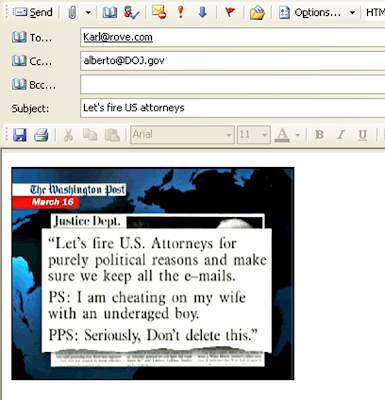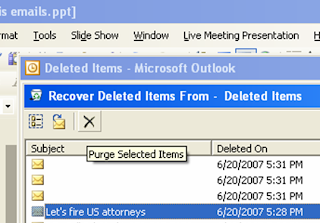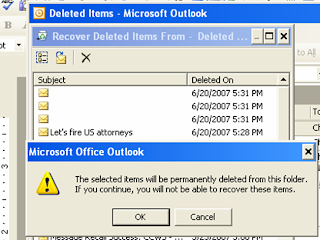Tribute to Dad: Chapter 5 of his journal. All I've posted starts with this chapter and is tagged
here. I will be updated as I have time.
James A. Chamblee
On a beautiful spring day in 1972, I glanced out of my closed office window on the ground floor of the Federal Trade Commission building on Pennsylvania Avenue. Beyond the heating grates and the high hedge that provide a warm and secluded winter sleeping spot for the winos of the neighborhood, on the sidewalk a few yards away, I bore silent witness to an encore performance of a Pennsylvania Avenue Rite of Spring.

Owing to the presence of a liquor store and a men's Christian mission across the street, the wino population density in the neighborhood stood far in excess of the national average. We called them winos then, because that's what they were. Except for an occasional bag lady, the downtown areas of Washington then had far fewer homeless people as we know them today, except near the mission and the liquor store. With the coming of Spring, Washington is also filled with tourist families and buses full of high school classes from all over America.
The street scene which I witnessed involved a conversation between one of the more disheveled and articulate members of the wino community, and a family of Washington tourists, including Dad, Mom, and the two kids, looking like they came from Wholesome Corners, Indiana. Since I had heard this particular wino's pitch previously in person in my office (in the off-season), I could afford to study his technique and speculate as to his probability of success.
His pitch unfolded as follows: "Excuse me folks; but I'm in a terrible situation, and I need some help." He went on to say that Congress is in session at the Capital, as they may know, and that he is scheduled to testify before Senator Proxmire's Committee this very afternoon on a matter of national importance (he is partial to Proxmire); but that he is running late and needs two bucks for cab fare to get him to Capital Hill in time for the hearing . If these kind people will only give him the two bucks, their nation will be forever in their debt for their contribution to ensuring that the government will continue to deal with the weighty matters that it must.
Never mind that this guy hasn't shaved in a week, badly needs several baths, and that his clothes haven't come off in a month. Never mind that the Capital is six short blocks away and could be walked in six minutes. Never mind that the cab fare is fifty cents and the chances that a cab would pick this guy up are nearly zero. With minimal hesitation, Dad forks over the loot, while they rest of the family watches with intense interest. The wino quickly scurries across the street with profuse thanks and the two bucks. After a few minutes of slight euphoria and animated conversation, with visions of their contribution being mentioned on the six o'clock news that night, the tourists resume their touristy pursuits.
The moral for me was that Americans want their government to work; but most don't have the foggiest notion as to how it works. They want to be a part of that working, yet few know how to or are able to participate effectively.
There have been several excellent books produced in the past several years on our government and how it isn't working. This book is not a deep analysis of the workings or failings of our national government. It is a practical guide to the Federal establishment, as told through a chronicle of the highlights of thirty-five years in the nation's capital by a single mid-level bureaucrat. It is not for tourists; but for civics classes with a sense of humor.
In the spring of 1963, I was uncomfortably ensconced as the head of the computer software systems group at the New York Stock Exchange, a new position that I had held for only three months. I was among several youthful senior computer professionals that the Exchange had hired to automate trade reporting at the hub of world finance.
In those heady days of the computer industry, very few people understood the concept of the stored program electronic computer, and even fewer had experience in programming these monsters. The transistorized computer was only then marketed widely, and was less than four years old. I was a senior person at age twenty-four, with four years of experience. My salary was $10,000 dollars per year, at that time in the top five percent of all U.S. incomes.
I was uncomfortable in this new position; because I was experiencing culture shock, and didn't know it. I had spent the previous four years in the IBM development labs, and even with the sometimes puritanical policies of that company, the development labs had been relatively informal. The NYSE, however, was perhaps the focal point for all conservative thought in the galaxy. In addition to these established attitudes, the exchange traders and staff were very suspicious of the new computer staff, and their welcome was less than warm. They correctly predicted that their modus operandi was about to be changed, and they didn't look forward to that prospect. It was a set of attitudes that a twenty-four year old senior computer programmer had little time to view understandingly.
The U.S. had three centers of computer concentration in 1963. Except for a few early research computers, most computers and computer people were concentrated in New York, Washington, and Los Angeles. To accept a position anywhere else was to isolate oneself from the computer mainstream. The computer skills in high demand at that time were so-called "real time" computing. I had three years of experience with these systems.
Despite the problems involved with working in New York and living sixty miles away, I love New York. One of the most appealing visions is midtown on a winter evening around 5:00. Soft lights illuminate the lobbies of office buildings and that light seeps out onto the sidewalk. The polished brass and glass of the entrances cannot fail to convey to the passer by that this is a polished city. Often, in my 27th floor office at the NYSE, the weather would be sunny at my level; but raining on the street level. Sometimes windows would be sucked out of their moldings by the strong winds which buffet lower Manhattan. I enjoyed watching the lunchtime “gallery” of Wall Street clerks which met daily at the intersection of Wall and Broad to heckle anti-capitalist speakers and to ogle good looking women who emerged from the subway.
Despite liking the city, when I was approached by a Washington, D.C. computer consulting firm with an offer of a twenty percent raise to $12,000 per year and a job developing a new "real time" system for the Navy, I accepted. Four years before, I had started at IBM at $3,800 per year. When my salary reached $6000 two years later, I had been able to purchase my first house, a new $15,000, three bedroom split level on half an acre. Truly I was headed for financial and professional greatness. I left my family in New York, and in May, 1963, arrived in the nation's capital for the first time.
Just to prove that the world is cyclical, twenty-nine years later, in 1992, my son, a computer scientist, (a microchip off the old block?) retraced this career move from New York to Washington. The world had changed both in Washington and New York in that period.
I had only a college textbook idea of what the national government was all about. The nearest I had come to dealing with the Federal establishment was a tax audit in 1961. My friend and schoolmate, Mike Landes, had an experience which confirmed our faith in the Feds. He had found what appeared to be an Indian artifact near his New Paltz, N.Y. home. Nothing unusual about that in the Hudson Valley. The artifact itself was a stone wheel with a stone shaft through the middle. We speculated that it might be an Indian child’s toy of some kind. He decided to send this find to the Smithsonian Institution in Washington for identification. He had no response for months, leading him to believe that his find was very significant, and that the Smithsonian probably had the item on display as we spoke. He therefore posted an inquiry to the Smithsonian, asking what they had found. A very nice letter was returned, informing Mike that his artifact had been examined by all the American Indian experts at the museum; but nobody could identify it. It was then examined by another museum staff which identified it as a coverless “D” cell battery for which only a portion of the insides remained. The museum offered to return or discard the find. We laughed about this “Indian artifact” for many years; but underlying our mirth was pride and gratitude that there were some real experts in our nation’s capital.
During my years in Washington, I worked in positions at the Federal Trade Commission, the Environmental Protection Agency, the Defense Mapping Agency, and the U.S. Army. I also worked for several computer consulting firms, the University of Maryland, and the Mitre Corp., all organizations on the fringe of government.
 The Post today has a front page story continuing the series by Robert O'Harrow: Costs Skyrocket As DHS Runs Up No-Bid Contracts: $2 Million Security Project Balloons to $124 Million.
The Post today has a front page story continuing the series by Robert O'Harrow: Costs Skyrocket As DHS Runs Up No-Bid Contracts: $2 Million Security Project Balloons to $124 Million. In addition to his front page appearance at ICG helping his wife land these bidders as paying clients, Davis was also pushing for laws that reduced contract oversight.
In addition to his front page appearance at ICG helping his wife land these bidders as paying clients, Davis was also pushing for laws that reduced contract oversight.








